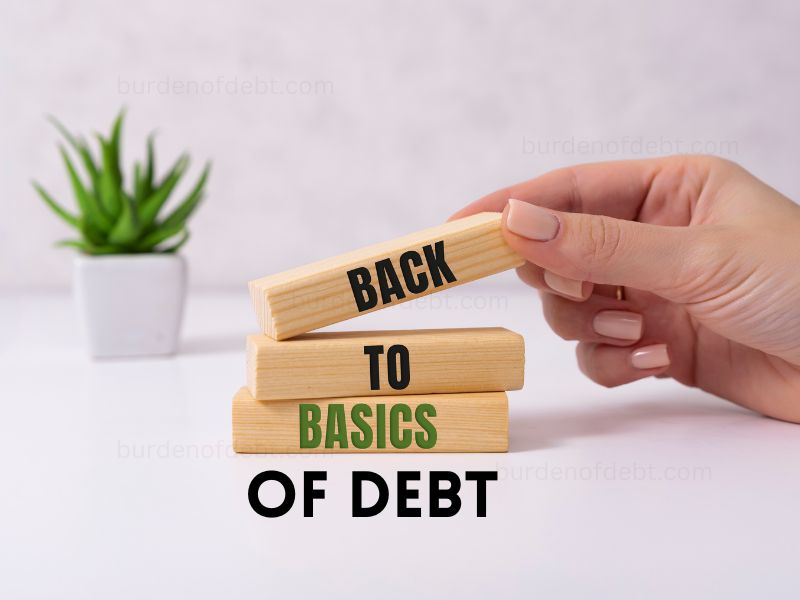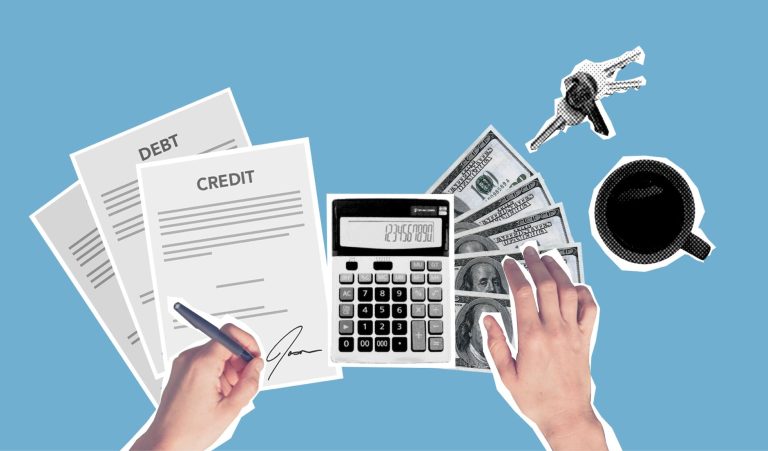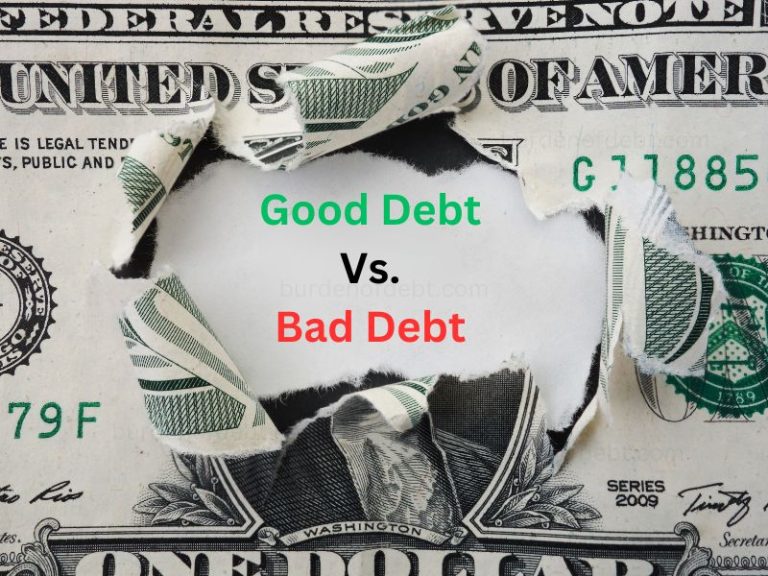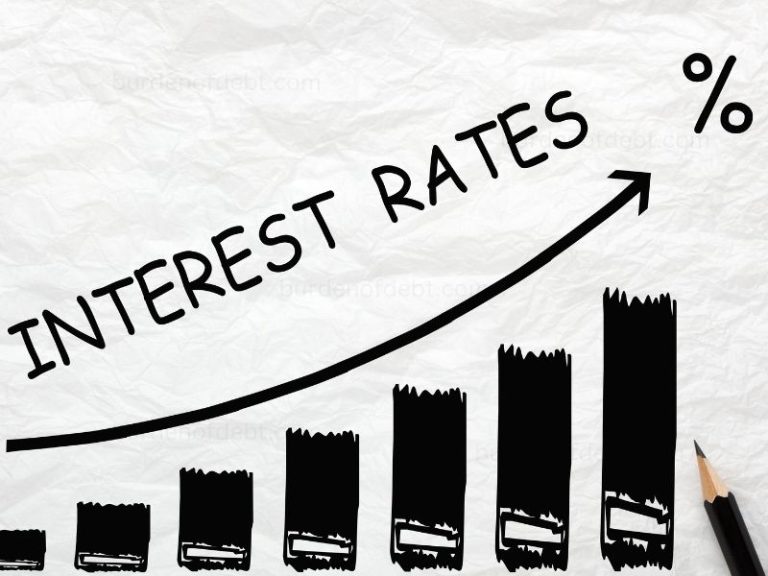The Basics of Debt & What You Need to Know
Understanding the basics of debt is crucial to financial literacy and responsible money management. Whether it’s a mortgage, credit card, student loan, or personal loan, most people will have to deal with debt at some point in their lives. By gaining a solid understanding of debt, you will be better equipped to make wise financial decisions and work toward financial independence.
What is Debt?
Debt is money borrowed by one party from another. Many individuals and businesses use debt as a tool to make large purchases that they could not afford under normal circumstances. A debt arrangement gives the borrowing party permission to borrow money under the condition that it is to be paid back at a later date, usually with interest.
The entity that lends the money is called the creditor, and the party borrowing the money is called the debtor. Debts can be owed by sovereign states or countries, local governments, companies, or individuals. For the purpose of this article, we will focus on personal debt, which individuals owe.
Types of Debt
Debt comes in several forms, and understanding the differences between each type is part of mastering the basics of debt. Here are some of the most common types of personal debt:
1. Credit Card Debt: This is a type of unsecured consumer debt. It occurs when a consumer uses a credit card for purchases but doesn’t pay off the full balance each month.
2. Mortgage Debt: This is what individuals take on when they buy a property. The property itself serves as collateral for the debt, meaning the lender could seize it if the borrower fails to make payments.
3. Student Loan Debt: This is debt incurred to pay for higher education. These loans are often provided by the federal government, though private loans are also available.
4. Auto Loan Debt: This is debt taken on to purchase a vehicle. Similar to a mortgage, the car acts as collateral for the loan.
5. Personal Loan Debt: These are loans taken out for personal use and can be secured (backed by collateral) or unsecured.
Interest and Principal
Two fundamental components of any debt are the principal and interest. The principal refers to the original sum of money borrowed in a loan or put into an investment. It is the amount upon which the interest is calculated.
Interest, on the other hand, is the cost of borrowing the principal amount and is typically expressed as a percentage. It’s how lenders make a profit from giving out loans. There are two main types of interest: simple and compound. Simple interest is calculated on the original principal only, while compound interest is calculated on the principal amount and also on the accumulated interest of previous periods.
Good Debt vs Bad Debt
While the idea of owing money might make you uncomfortable, not all debt is bad. Good debt is an investment that will grow in value or generate long-term income. Taking out a loan for a home, starting a business, or getting an education can lead to higher net worth in the future, making these potentially good debts.
Bad debt, on the other hand, applies to purchases that quickly lose their value and do not generate long-term income. They also carry high-interest rates. Credit card debt is a common example of bad debt. While it’s often necessary to take on debt for significant purchases, it’s crucial to distinguish between good and bad debt when planning your financial future.
How Does Debt Affect Your Credit Score?
Your credit score is a numerical representation of your creditworthiness, and debt plays a significant role in calculating it. If you manage your debt well, making all your payments on time, it can positively impact your credit score. However, if you miss payments, default on a loan, or carry a high level of debt, your credit score can be negatively affected.
Specifically, your credit utilization ratio, which is the amount of your total debt compared to your total available credit, significantly influences your credit score. Maintaining a low credit utilization ratio (generally below 30%) is a good practice to positively impact your credit score.

Managing Your Debt
Debt can seem overwhelming, but there are strategies to manage it effectively. Creating a budget is the first step in understanding where your money is going and how much you can realistically set aside for debt repayments. Be sure to make at least the minimum payments on all your debts each month to avoid late fees and damage to your credit score.
Consider using strategies like the “debt avalanche” method, where you focus on paying off the debt with the highest interest rate first, or the “debt snowball” method, where you pay off smaller debts first to gain momentum. In some cases, debt consolidation or refinancing could be a good option, as it may lower your monthly payments and simplify your finances.
However, always be cautious about new borrowing to ensure that it aligns with your financial goals and you’re able to manage the repayments. If you’re struggling with debt, don’t hesitate to seek help from a credit counselor or financial advisor.
The Consequences of Defaulting on Debt
Defaulting on debt means failing to pay it back as agreed upon with the lender. This can have severe consequences, including lowered credit scores, increased interest rates, wage garnishment, and legal action. It could also make it harder to borrow money in the future.
Understanding Your Rights as a Debtor
As a debtor, it’s crucial to understand your rights. The Fair Debt Collection Practices Act (FDCPA) provides protections for consumers who owe money to merchants, credit card companies, or others for household debts. It prohibits debt collectors from using abusive, unfair, or deceptive practices to collect a debt. Knowing your rights can help you manage any interactions with debt collectors more effectively.
Wrapping Up
Understanding the basics of debt is essential to managing your finances successfully. Debt is a tool that, when used carefully, can help you invest in your future. However, if not managed wisely, it can lead to financial stress and difficulty.
Remember, the key to handling debt effectively is understanding what type of debt you’re taking on, being aware of the interest and principal, managing your debt responsibly, and knowing your rights as a debtor. By keeping these key points in mind, you’ll be better equipped to navigate your financial journey.
FAQ
Debt is money borrowed by one party from another under the agreement that it will be repaid, usually with interest, at a later date.
Common types of personal debt include credit card debt, mortgage debt, student loan debt, auto loan debt, and personal loan debt.
Good debt is considered an investment that will grow in value or generate long-term income. Bad debt, on the other hand, is debt taken on for purchases that quickly lose their value and do not generate long-term income.
Debt significantly impacts your credit score. Timely repayments and a low credit utilization ratio can positively affect your score, while missed payments, high credit utilization, or defaulting on a loan can hurt it.
Defaulting on debt can lead to serious consequences, including lower credit scores, increased interest rates, wage garnishment, and legal action.
© 2015-2023 by burdenofdebt.com, a LIVenture. All rights reserved. No part of this document may be reproduced or transmitted in any form or by any means, electronic, mechanical, photocopying, recording, or otherwise, without prior written permission of LiVentures LLC.







